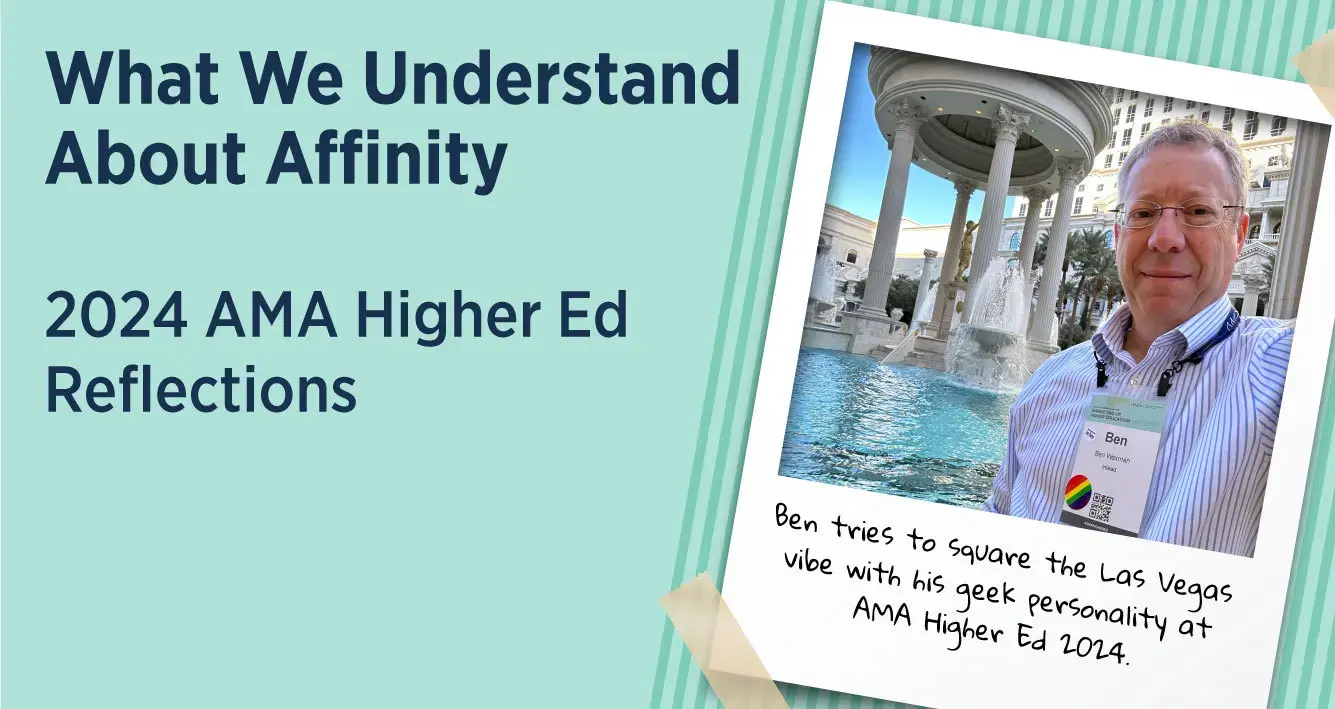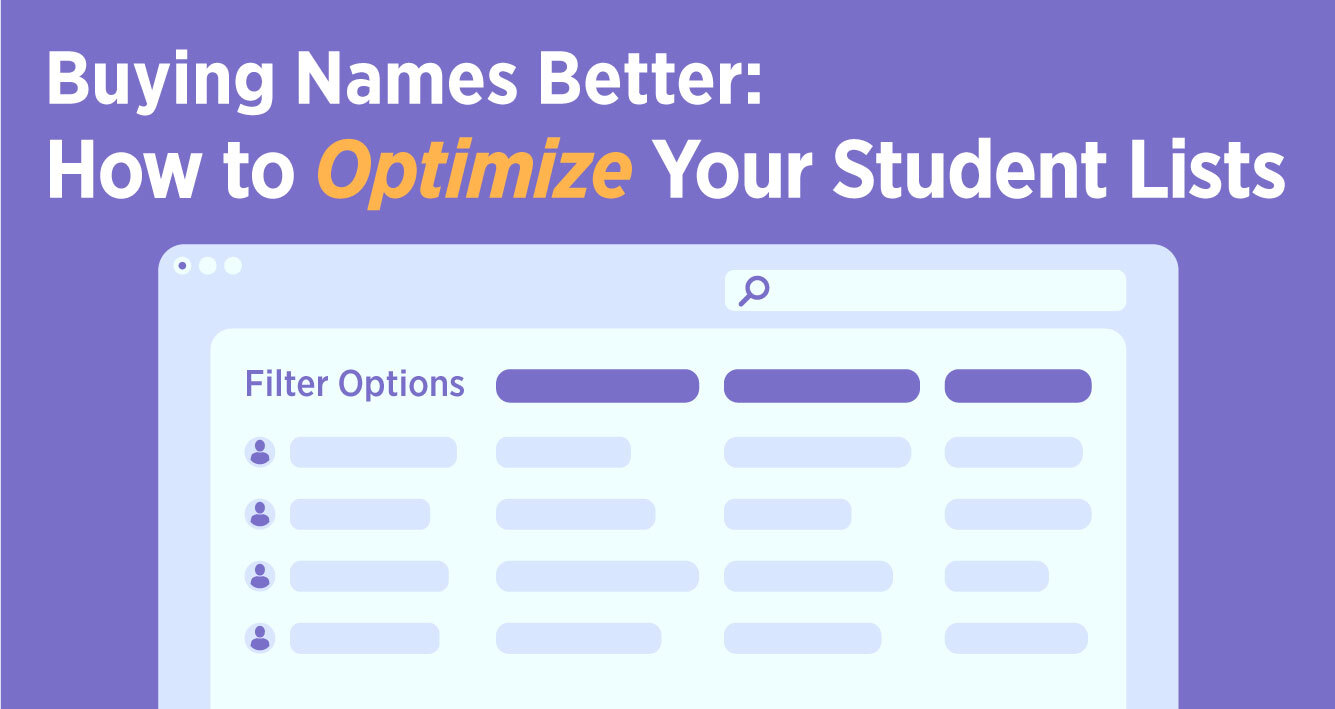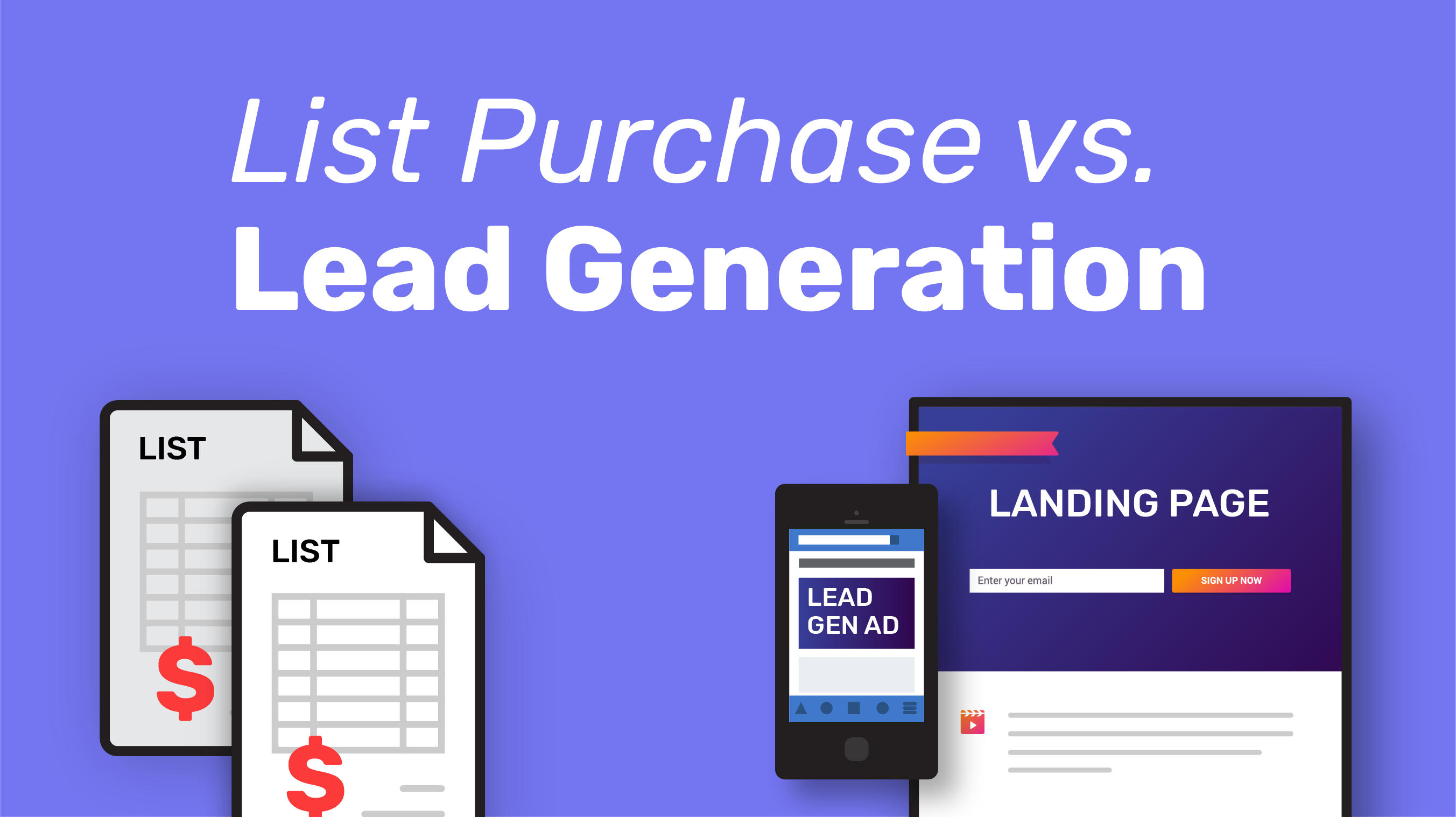The opening plenary at the AMA Higher Ed conference by Dr. Steve Robbins was spot on great. With a neuroscientific underpinning, he presented the human desire for inclusivity as a biological need we all share as part of our survival instinct. Playfully using the rivalry between Michigan State and University of Michigan, he pointed out how we make excuses for “insiders” (those in our affinity group). When they exhibit frustrating behavior, we often give them a pass. At the same time, “outsiders” are seen as annoying and exhibiting behavior typical of their group. No pass for them.
Opportunities to Meet the Intead Team
- PIE Live North America, Boston TODAY Look for Ben on stage at the IIE Open Doors: What is the Latest Data Telling Us? session at 2:30 in Grand Ballroom A&B.
- AIRC, Seattle-Bellevue, Washington, Dec. 4-7 -- including our pre-conference global marketing workshop. A full day of Intead global intel (lunch included ; -). Details here.
- AIEA in March and NAFSA in May, we'll be presenting our latest findings at both. Let us know if you want to connect at either of those two events.
Bookmark this: Intead’s Resource Center
Access 800+ articles, slides decks, reports with relevant content on any topic important to enrollment management and student recruiting. Check it out.
With 1,800 people in attendance, this year was the AMA Higher Ed’s largest conference attendance yet. And from what the AMA says, that is the largest attendance of any AMA branch conference. People from 14 countries were there. And of the 1,800 attendees, about 430+ US higher ed institutions were represented.
Dr. Robbins’ approach to introducing and promoting the idea of inclusion to those who may be of the mind that DEI and “woke” perspectives are simply too much to handle is welcome and perhaps the necessary path forward. Since this is the AMA, we are looking at inclusion in light of human (read: consumer) behavior and the importance of understanding this human desire to be part of a group as it relates to student marketing and recruitment. Diversity results from inclusive policies and practices.
Dr. Robbins discussed the importance of feeling valued within the tribe you join. As a consumer of education or any other product or service, there is an affinity we are aiming to acquire. That connected and valued feeling leads to student retention and marketing concepts of customer lifetime value (think continuing education and alumni engagement).
He also talked about the opposite effect: when people do not feel welcomed or included. These feelings light up the same pain centers in our brains that physical pain (a slap or a punch) elicits when experienced. And so, when we don’t promote inclusive practices, we are pushing people away and prompting quite literally a painful experience.
People I talked to at the conference found Dr. Robbin’s talk a welcome and eye-opening presentation. Another aspect of the conference I found valuable: AMA’s use of Topical Idea Exchanges. These gatherings were smaller groups who circled up the chairs and focused on specific topics. The two I attended (one on celebrating and leveraging milestones (think: centennial celebrations), the other on leveraging organic social channels using institutional and senior leader accounts (think: managing chancellor social accounts). Both sessions were well led and filled with smart people who shared ideas and perspective, asked great questions, and overall made networking and information gathering comfortable and valuable. Though, I did hear some mixed reviews on that format from others.
I attended a couple of sessions during the 1-day I had available at the conference. Kerry Salerno, vice president marketing and communications at Babson College and my co-presenter this week at PIE Live in Boston, talked about presenting marketing results to leadership. A great topic, as in, how do you simplify all the marketing information and results in a meaningful way that prompts wise decisions from the top? The short answer: simplify.
What I most valued in Kerry’s presentation was her candor about how, over the past 6+ years in the position at Babson, she has made a concerted effort to train and adapt her marketing team to embrace a data informed culture. That work is hard and laborious. Having run a marketing agency for more than 30 years now, when I consider all the elements of running a business, the hardest part is always choosing and developing the talent around me to achieve the goals. How do you accommodate all of the personal, professional, and financial goals for each person and align that with company goals?
It’s a lot. Always.
Which brings us back to the idea of inclusivity. Who is part of the tribe? How do you help them feel valued? How do you maintain that feeling despite the challenges that your team, your administration, your students will inevitably face over time? Are you taking the time to figure this very difficult stuff out? How strong is your team’s affinity for each other and the work? Read on...
Read More



